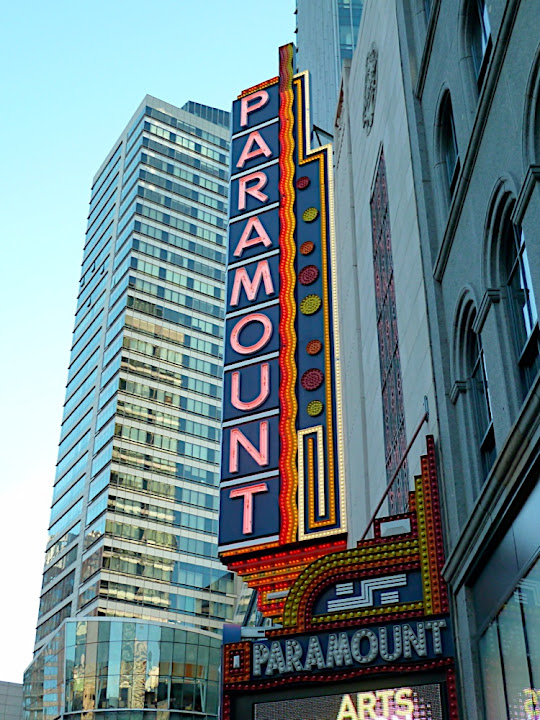hub
This city used to be modestly called the hub. As in: the hub of the universe. Well, not the entire universe: just the solar system. Hence modesty. For quite a long time Boston did not have to prove anything to anybody. Not even to those new fangled New Yorkers. By the time we moved into the area though, it did not look like much. It had history on its side: American independence war started here and the city itself was founded in 1630 which is why everyone was telling us it’s old. But we moved from Gdańsk, which was just celebrating its millenium, so less then 400 years did not impress us. Dirty, messy and unreasonably cold: this is pretty much how we felt about it.
For 16 years Boston had been a site of the Big Dig - a gargantuan project of converting an elevated highway into an underground tunnel. When we came to US for the first time the project was in full swing and the city was not only broken in half by the I-93 but also marred by countless constructions and detours. I blame it for our stint in the suburbs: Boston just wasn’t an attractive place.
Sure, it had theaters and concert halls, restaurants and bars. And Boston Harbor had its worst days behind it: cleaned up, ready for daysailing and may be even swimming. Spectacle Island wasn’t used as a dumping ground any more, but was still considered a biohazard. And with cars jamming its streets, rats disturbed by excavations parading in broad light, buildings deserted after the S&L crisis - it had been on a seedy side of urban living.
It started looking much better when the Big Dig was finally completed. The scar of the highway finally disappeared covered with a budding park. Construction crews moved elsewhere. Streets reconnected downtown with Italian North End. The city became livable again. So we moved in and spent nearly 5 years living in a minuscule Leather District finally getting to know the place and its inhabitants.
Boston has many secrets. We know now that it looks best from the water: when you are getting back to the inner harbor from an evening sail. Or from the Cambridge side of the river with the golden dome of the capitol towering over Beacon Hill and Financial District skyscrapers in the background. We’ve learned to ride its antiquated and confusing underground known simply as The T. We know how to walk from place to place - and you can walk everywhere since everything is pretty much within the 2 mile radius. We used to walk home at night all the way from our favorite movie theatre: across the Salt and Pepper bridge, through gas lit Charles St, empty and dark Boston Common and supposedly dangerous Chinatown (no-one ever bothered us). We’ve made endless loops biking between Charles River bridges on the paths full of other bikers, skaters and jogging students. We have our favorite places - like an enticingly modern and yet cozy auditorium in the new ICA building. And our favorite bike routes that start with an obligatory visit in South End Formagio and end up with a picnic on Peters Hill in Arnold Arboretum. Yet another good spot where you can see the city and its emerald necklace of parks. It was not easy but it kind of started feeling like home. So, naturally, we decided to leave Boston and see the rest of the country.
When we came back for a short visit last week we noticed a few changes since last fall. Renovations of the Paramount and the Modern theaters on Washington Street are completed. No signs of development at the nearby Filene’s site, but at least it is nicely wrapped for the winter. It’s not exactly Christo, but at least it’s not scary. And there is still hope as the owner put it up for sale.
Completion of the I-93 tunnel coincided with American real estate bubble. And Boston has got a full benefit of it. Residential construction has sprung everywhere: conversion of townhouses into condos, transformation of warehouses into lofts, construction of brand new luxury towers.
We had moved to Boston with a full intention of buying a condo. But spending a substantial amount of money requires a leap of faith, and we were just too skeptical to buy into a sliding market. It is a bit of mystery that local bubble has not completely deflated. Differently than elsewhere Boston has experienced a relatively benign bust. My explanation until now was the amount of money in Boston - it has been a home to rich people, who can afford to sit out the decline for longer. But may be some of the price increases captured an actual improvement of the city? Boston simply is a nicer place than it was 15 years ago. People are not in a hurry to sell and move out. Which is fine with us. The old hub is not bad, but the freedom of exploring spokes before settling down is better.

